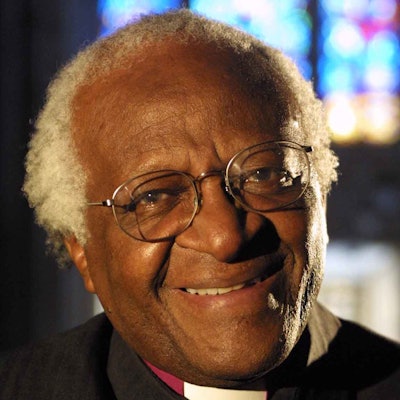Archbishop Desmond Tutu, the Nobel Peace Prize-winning Anglican cleric who emerged as a fierce champion for education in the rebuilding of South Africa post-apartheid, died over the weekend. He was 90.
South African President Cyril Ramaphosa called Tutu "a patriot without equal."
"A man of extraordinary intellect, integrity and invincibility against the forces of apartheid, he was also tender and vulnerable in his compassion for those who had suffered oppression, injustice and violence under apartheid, and oppressed and downtrodden people around the world," Ramaphosa said.
Tutu had been in declining health for years. In 2013, he underwent tests for a persistent infection, and he was admitted to hospital several times in following years.
Affectionately known as "the Arch"—Tutu was one of the driving forces to pushing the South African government to end apartheid, the country's official policy of racial segregation. After apartheid ended in the early 1990s and the long-imprisoned Nelson Mandela became president of the country, Tutu was named chair of South Africa's Truth and Reconciliation Commission.
The Nelson Mandela foundation called Tutu's loss "immeasurable."
Black civil rights leaders praised Tutu’s legacy and said that he was a force for good.
“I thank God for the gift of Archbishop Desmond Tutu,” said Reverend Al Sharpton. “90 years of service, true ministry and freedom fighting. In his presence, I always felt a man in touch with God.”
Reverend Jesse L. Jackson, said that he first met Tutu during a visit to South Africa in 1979.
“He was a man dripping in courage and moral authority,” said Jackson. “Bishop Tutu was an equivalent of Nelson Mandela out of jail. He was an ambassador of peace and a moral voice that was heard around the world.”
Former President Barack Obama remembered Tutu as “grounded in the struggle for liberation and justice in his own country, but also concerned with injustice everywhere.”
“With the passing of Archbishop Desmond Tutu, we have long a legendary champion of justice and equality,” said Darren Walker, the president of the Ford Foundation. “His extraordinary lifetime of activism in South Africa and beyond, as well as, his tireless work for racial justice and LGBT rights, will continue to inspire us.”















